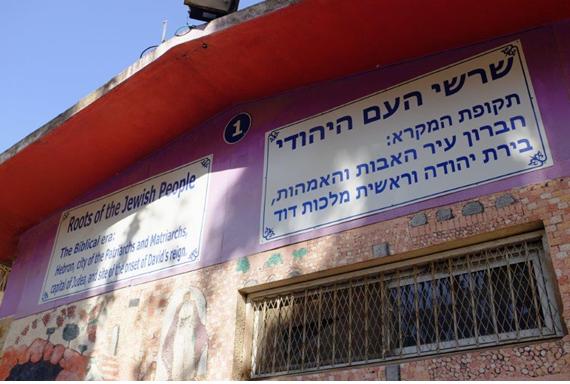Rabbis for Human Rights are seeking action against signs posted without authorization on private Palestinian property as well as the unauthorized replacement of street signs in Arabic with others in Hebrew and English and which bear new names of streets where the majority of residents are Palestinians. The army has refused to act against this phenomenon, including having denied permission to independently remove the signs.
On Tuesday, April 25, 2017, Rabbis for Human Rights sent a letter to the army warning it of impending legal action if its decision is not changed within seven days. The letter was sent to Colonel Eyal Toledano, legal advisor to Judea and Samaria, and Major General Roni Numa, head of the Central Command, and came in response to recent correspondence in which the army indicated it would not neither remove the objectionable signs in Hebron nor would it provide security to activists seeking to do so themselves.
In recent months, Rabbis for Human Rights, together with the Palestinian collective “Youth against Settlements,” requested that the army provide them with physical protection when they undertake to remove objectionable signs posted in Hebron on private Palestinian property and/or on streets where the majority of residents are Palestinians.
Signs presenting the settler narrative of the area have been imposed on Palestinian shops and other private property without the owners’ consent. In addition, Arabic street names have been given new Hebrew names and the Arabic have been removed and replaced with ones exclusively in Hebrew and English. This has occurred on streets where Palestinian residents are the majority, and via a process that has not been approved either by the Hebron municipality or by the military authorities.
These sign replacements, apparently carried out by elements within the Hebron settler community, violate the cultural and social rights of the Palestinians, contravenes the law, and has been carried out without the approval of the authorities. The army, however, has increased culpability in this situation, as the replacing of signs activities was carried out under its protection in clear capitulation to the coercive tactics of a small and extremist group. Not only did the army — as the force responsible for the area under both Israeli and international law — refuse to act against the offensive signs itself, it also prohibited Israeli and Palestinian activists from taking action themselves.



